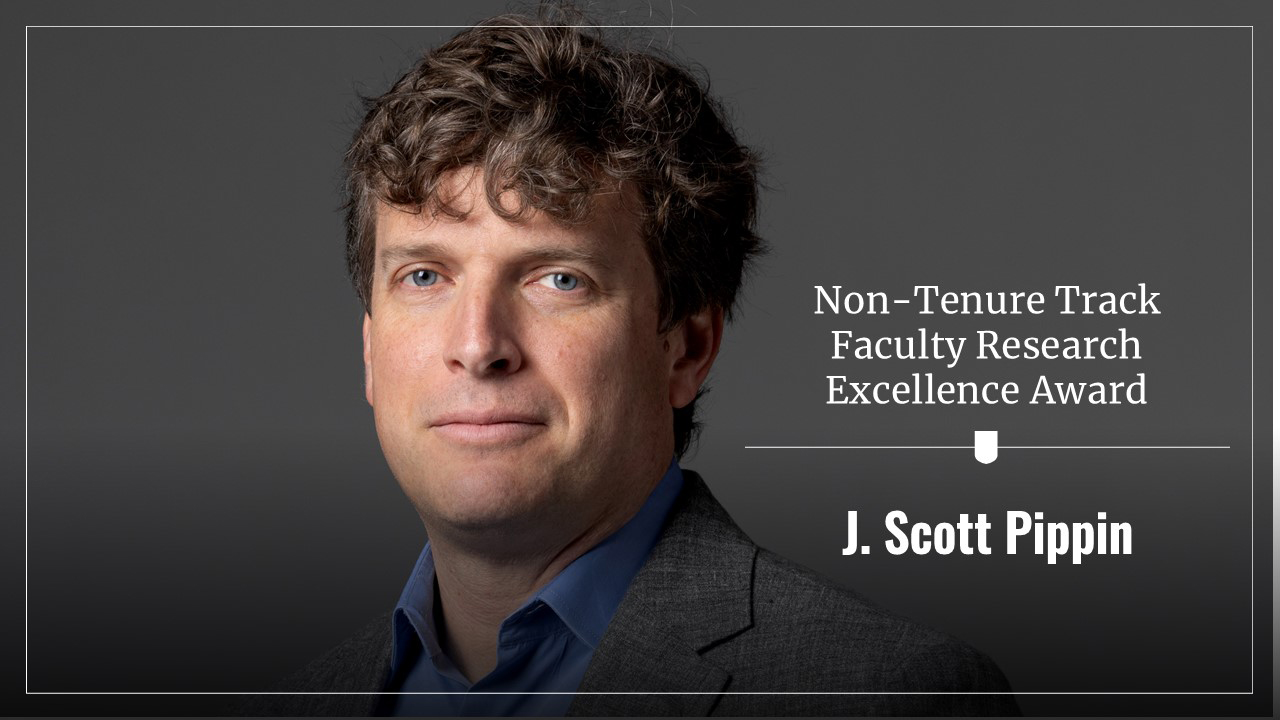Scott Pippin, UGA Institute of Government faculty, was honored recently with an award for research excellence. As part of the University of Georgia’s Research Awards Program, Pippin received the 2025 Non-Tenure Track Faculty Research Excellence Award. Established in 2023, the award recognizes exceptional research productivity and commitment to excellence by a non-tenure track faculty member. Recipients demonstrate an exceptional degree of research novelty and impact on their field of study.
“Pippin continues to advance impactful solutions for resilient communities,” the university said in a statement.
At the Institute of Government, Pippin is a leader in applied research on community resilience, environmental policy and infrastructure planning. He founded the Defense Community Resilience Program, a multidisciplinary initiative strengthening military installations and surrounding communities through data-driven planning and policy strategies. His work has secured over $7.6 million in federal awards and was instrumental in developing two 10-year intergovernmental support agreements with the U.S. Army, totaling over $100 million in authorized funding.
“Partnerships with defense communities leverage our unique abilities in Public Service and Outreach to connect them with the necessary resources to bolster economic development and enhance quality of life,” Pippin said.
Pippin is an attorney and community planner who joined the Institute of Government in 2014. He works on issues concerning planning, infrastructure, land use, economic development, and updating and revising city and county ordinances. In 2022, he received the Walter Barnard Hill Award for Distinguished Achievement in Public Service and Outreach.
“Scott has made substantial contributions to community and economic resilience in unique and innovative ways that have pioneered new ideas and created resources that are directly supporting government officials and positively impacting communities across Georgia,” said Rob Gordon, director of the Institute of Government.
In addition to planning and technical assistance, Pippin works directly with communities to develop funding and implement projects that provide substantial local benefits. He also delivers training courses on a wide variety of subjects, such as stormwater management, planning and zoning practices, community resilience and sustainability, and preparing for large-scale energy installations. Prior to joining the Institute of Government, he worked as a local government attorney and an environmental consultant.
Pippin’s research has shaped policies on transportation networks, wastewater infrastructure and flood mitigation, influencing federal and state decision-making. His peer-reviewed publications, law review articles and national presentations have earned recognition from the National Academy of Sciences and the U.S. Department of Defense.
